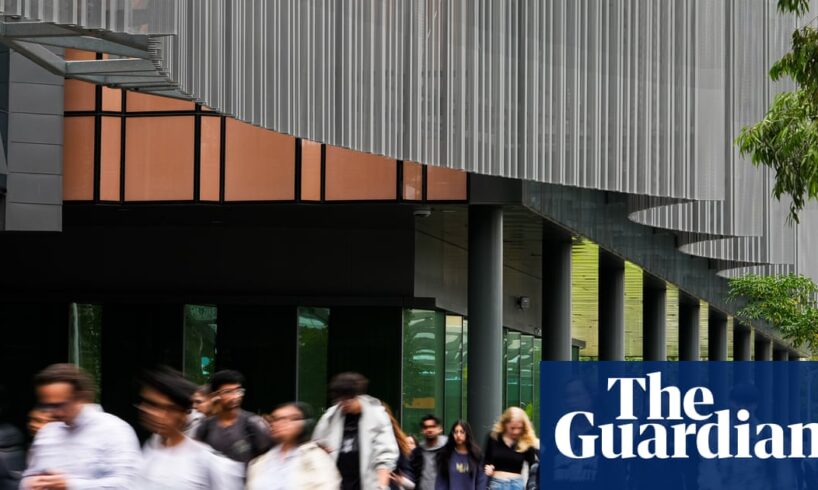
Students will be paying $50,000 for arts degrees until at least 2027, says one university vice-chancellor, despite the Albanese government labelling the controversial job-ready graduates scheme (JRG) that included an increase to some fees a “failure” and promising to reform it.
The Morrison government program increased the price of university degrees including arts, humanities and law, while reducing the cost for STEM degrees such as mathematics and essential worker degrees including teaching and nursing.
The Western Sydney University vice-chancellor, George Williams, a vocal critic of the program, told Guardian Australia he was “hopeful” it could be reformed in time for students studying in 2027.
“I’ll be hopeful for 2027 but it’s looking challenging given what the government has already prioritised, and it will take some months to get through the process,” he said.
“I thought this might have been fixed in the first term of Labor; it’s taken longer than it should have.”
Sign up: AU Breaking News email
The government has established the Australian tertiary education commission to redesign university fees. But legislation must be passed before Atec can be officially established in early 2026.
Prof Andrew Norton, an expert in higher education at the Monash business school, said this meant a 2027 timeframe would be the absolute earliest to change the structure of university fees.
“The government will get this new commission to advise them on new funding rates, and the broad idea is they go back to the old system where there’s some rough relationship between earnings and the fees you pay,” he said.
“The government [then] has to accept that advice, legislate that advice, and introduce the policy … this will probably take most of 2026, so 2027 is the earliest possible date in my view for a different student contribution system.”
Norton and Williams believe cost is the primary factor for the delay.
“They [the commonwealth] would either have to significantly increase student contributions in other courses to offset the cost, which has obvious political implications,” Norton said.
“Or they would have to substantially increase subsidies from the government budget, which they’d be reluctant to do given their overall fiscal situation.”
The universities accord released its interim report about the sector in July 2023 which found JRG had failed. It recommended the scheme be replaced.
skip past newsletter promotion
Sign up to Breaking News Australia
Get the most important news as it breaks
Privacy Notice: Newsletters may contain info about charities, online ads, and content funded by outside parties. For more information see our Privacy Policy. We use Google reCaptcha to protect our website and the Google Privacy Policy and Terms of Service apply.
after newsletter promotion
Soon after that, the education minister, Jason Clare, scrapped a rule introduced under the scheme, which removed Hecs debt eligibility for students who failed more than 50% of their units.
Other recommendations included introducing payments for some students participating in practical placements, which the government has also implemented.
On 19 August, Clare told the AFR education summit the fee structure would be changed, but it wasn’t a priority.
“We’re taking reform one step at a time,” he said. “Whether it’s the structure of universities or whether it’s fixing JRG, reform is a bit like eating an elephant – one bite at a time.
“I’ve never ruled out reform here. It’s all about what you do first.”
Earlier this month, Labor backbenchers publicly pressured the government to speed up the reforms. Victorian MP Carina Garland, for example, said the issue was frequently raised with her by constituents, and she did not want to see the scheme become “too entrenched”.
Williams said students from lower socioeconomic backgrounds and women were most affected by the scheme.
“It was a failed and flawed idea in the first place but what it does do is provide a major disincentive for students to go to university,” he said.
“That’s particularly students from poorer backgrounds, Indigenous students and women, who are the biggest users of an arts degree.”
The Western Sydney University chancellor, Jennifer Westacott, agreed, and said arts degrees were an important step for some people to access further education.
“For many people in low [socioeconomic status] brackets, an arts degree is a very important entry level qualification for people to [then] go on and do more study in specialty fields.
“The idea that we are not going to have serious investment in humanities in this AI-digitised world is crazy. We’ve got to not lose sight of the fact that what you need is critical thinkers, people who are good at problem solving, people who have a philosophy about the world, people who understand ethics and values.”
Clare’s office was contacted for comment.





